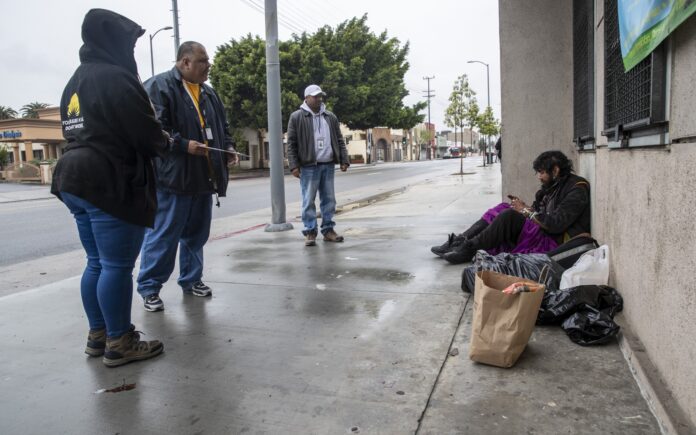The coronavirus crisis has begun to do something the city of San Francisco has not done for years: get homeless people off the streets and into shelters, including some of their now-empty hotels. Homelessness has long been a problem in this city, but now it’s made even more complicated by the coronovirus, “Johnson said in a statement. So far, elected officials such as Mayor Ed Lee, Supervisory Board member Scott Wiener and City Council members have supported the nonprofit group’s request.
Faced with the possibility that the virus could kill the nearly 10,000 people living on the streets and in temporary shelters, city officials have secured the necessary self-quarantine. The rooms would also be available to homeless residents, who would have to isolate themselves so that they could not be returned to the community without infecting others.
Their case is just one of thousands of cases wafting through the homeless community and people seeking help as officials struggle to find shelter to isolate the sick and safely shelter the most vulnerable. We know that San Francisco’s program managers plan to radically increase the number of homeless beds in the city soon. There is a good chance he will catch the coronavirus in the same people we are supposed to protect from the dangers of life outside.
Service providers acknowledge that not everyone on the street will get an emergency bed in this crisis. Signs directing people to the San Francisco Department of Public Health’s homeless shelter in Mission District show signs of people in need.
It is being reported that some city hospitals are sending seemingly homeless people who have tested positive for coronavirus but do not need intensive care into emergency accommodation in isolation.
Governor Gavin Newsom has instructed local authorities to find locations to reduce the density of homeless shelters in areas with basic health conditions, such as those showing symptoms or who tested positive for Covid 19, county Executive Frank Kim said Thursday. Uniquely, people who live on the street or in shelters are more likely to be caught, “Hill said. Newsome has not only addressed the problem of the homeless following the coronavirus outbreak, but has also made homelessness a priority in his first 100 days in office, and he has directed the state’s health departments, as well as the California Department of Health and the Department of Homeless Services. To “find sites that help reduce density in homeless shelters, particularly for people with underlying health problems and those who have shown symptoms,” which are tested positive in Covids 19.
The state will use $50 million to buy 1,300 travel trailers and rent hotel rooms for emergency shelters, and two-thirds of that money will go directly to local governments to spend on homeless services. The state is also providing Orange County with 78 caravans to isolate the homeless
The Senate recently passed the CARES Act. The bill includes $4 billion in homelessness aid to be distributed through the Emergency Solutions Grants Program (ESG). This is just one of many provisions that will be important for communities trying to keep the homeless and people at risk of homelessness safe. The bill, which includes a $1.5 billion increase in funding for homelessness services for the homeless and their families, will be financed through a combination of federal, state, local and private funding.
HUD recently released a report on how ESG is being used to fund activities to protect homeless people from the new coronavirus. Amber Richmond is tired of berating her homeless man who coughs and doesn’t cover her mouth.
The number of homeless people with coronavirus infections living in city shelters has doubled in the past week as social services workers struggle to cope with the growing number of cases affecting some of New York’s most vulnerable. At least seven residents of a homeless shelter in New York City are currently testing positive for coronavirus.
The East Coast city has a similar initiative to California, while New York has joined California in suspending evictions, suspending evictions, keeping homeless shelters open, and routinely checking the health of the homeless population and its residents. Local news media reported that the city’s Department of Health and Human Services (DHS) and the Department for Homeless Services are offering coronavirus tests for the homeless.


